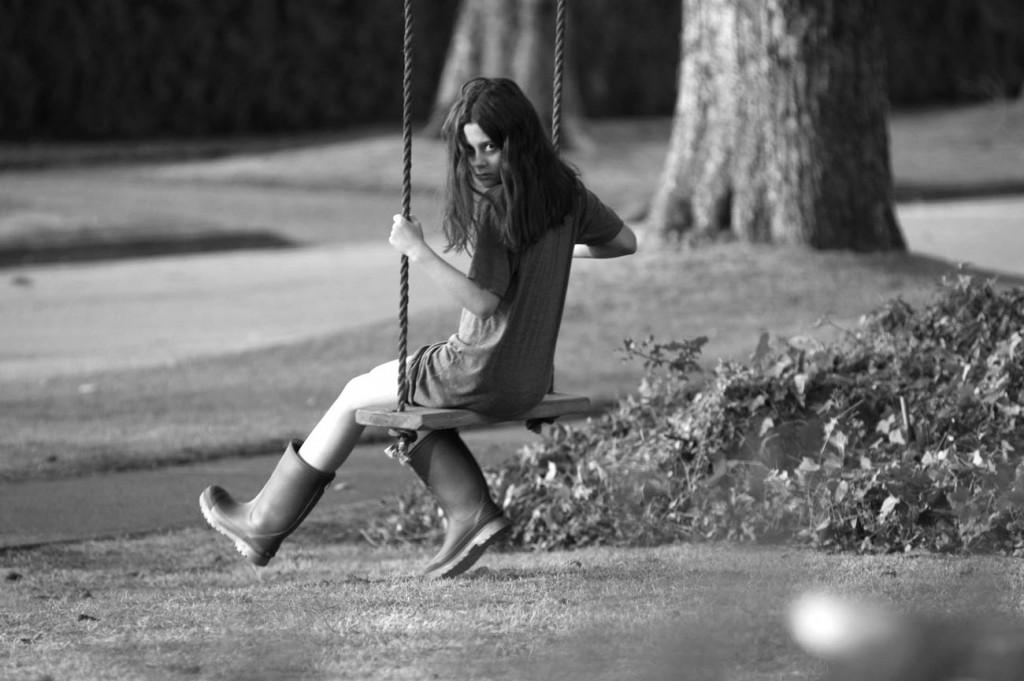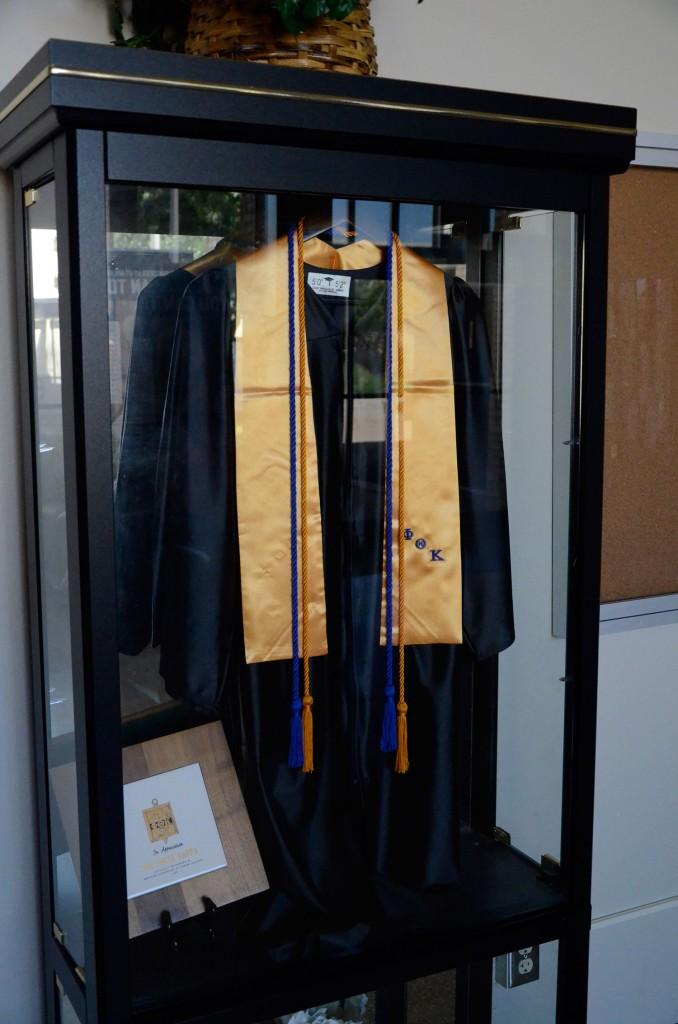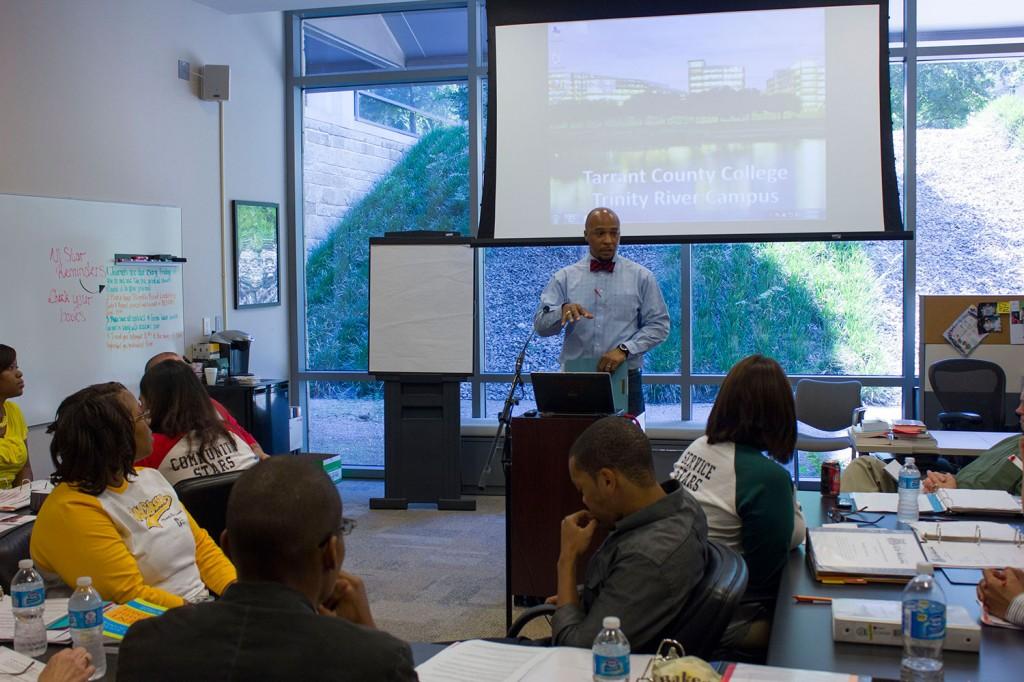By Kirsten Mahon/tr news editor
“Is this where you buy ideas?”
This is the question most often asked when students enter TR Campus’ Idea Store for the first time.
The multi-functional space, similar to other Idea Stores in London, was created to accommodate students during their downtime on campus, said Angel Garcia, TR coordinator of community outreach and service.

David Reid/The Collegian
The store draws attention with its odd shape. Cylindrical with a slanted roof, the building appears as its own entity, perched on the corner of the campus. Its location makes the store a sort of pinnacle of TR as the rest of the campus stands directly behind it at a lower elevation with a bridge connecting the two.
Before TR came into existence, the entire site belonged to RadioShack, including the Idea Store that was then called Store One.
“That was where RadioShack wanted to show Fort Worth all of its newest inventions,” said Tahita Fulkerson, president of TR Campus. “And I thought to myself, that’s the store where you would sell the idea of higher education.”
Inside the store, a student might first notice the large, circular digital message board in the ceiling, frequenting TCC’s logo and mission statement. Beneath the message board, there’s a panorama of touch-screen computers, lined up in a semicircle against the window with Fort Worth bustling behind it.
“Everything’s so inviting. Everything’s saying do something,” Garcia said.
Garcia explained that the newness of the campus needed new ideas that invited easy self-expression for students and faculty.
The dining room houses a large black table furnished with chairs and shelves populated with encyclopedias and literature. There are virtually no doors. Around the corner from the dining area is a small kitchenette with a coffee pot and microwave. The living room has a 72-inch flat screen mounted on the wall, a coffee table and sofas. One compartment over is the den, complete with a foosball and pool table. The entire set up is inviting and informal, which Garcia said was part of the plan.
“Some things can be so restrictive,” he said.
In particular, Garcia said, school settings can be restricting to expression. When the campus opened three years ago, he said one of the major concerns was finding a way for TR to be anything but restrictive.
This space is the prime example of “sticky spaces,” or areas on campus dedicated to keeping students engaged when they’re not in class, Garcia said. While the space is a technological hub that attracts students seeking downtime between classes, it can also be used simply to study.
The atmosphere is relatively quiet and is also equipped with Internet access and well-lit areas secluded from other parts of the store, Garcia said. If students need help with Blackboard, myTCC, Career Coach or TCC web tools, faculty are there to help. This can also engage students during the time they don’t spend in classrooms.
“The best ideas we have lie with the students or come from the bottom of an organization,” he said. “Sometimes, ideas take a long time to develop. And as the world changes so quickly, by the time those ideas surface, they’re already old.”
Sticky spaces are designed to help students and faculty, Garcia said. The Idea Store is connected to the campus enough to still feel engaged in the educational setting but detached enough to shed the confined classroom setting or the restricted rules of a library, he said. Faculty and students can use this space outside of the classroom for any need — tutoring, events, meetings.
“This is how we visualize this space,” Garcia said. “It is so flexible. So when a student asks me if this is a place where you buy ideas, I tell them, ‘No, but you might come away with one.’”


























